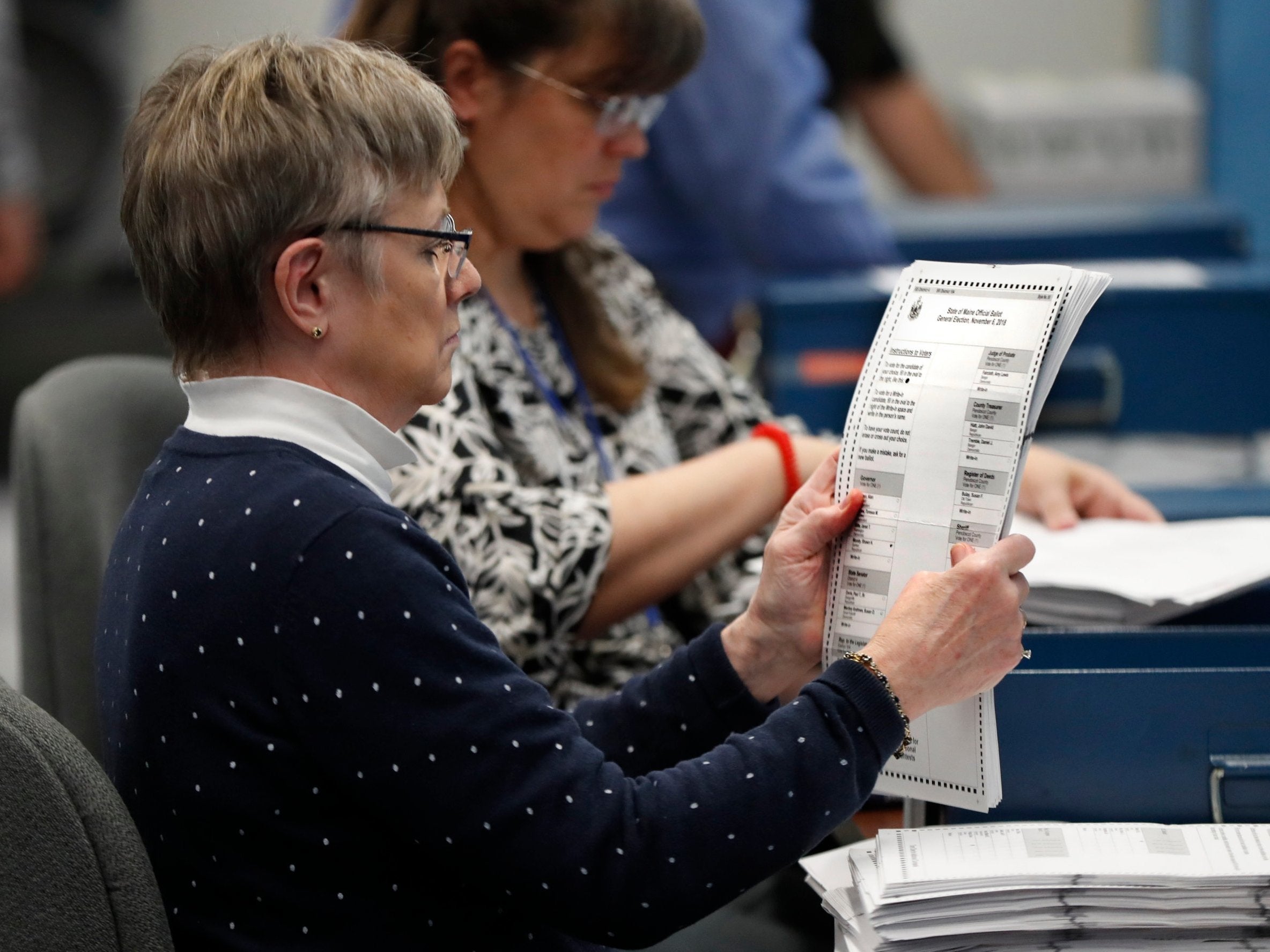Democrats flip another House seat as Jared Giolden wins historic election in Maine
The results are being challenged in federal court by the Republican candidate

Your support helps us to tell the story
From reproductive rights to climate change to Big Tech, The Independent is on the ground when the story is developing. Whether it's investigating the financials of Elon Musk's pro-Trump PAC or producing our latest documentary, 'The A Word', which shines a light on the American women fighting for reproductive rights, we know how important it is to parse out the facts from the messaging.
At such a critical moment in US history, we need reporters on the ground. Your donation allows us to keep sending journalists to speak to both sides of the story.
The Independent is trusted by Americans across the entire political spectrum. And unlike many other quality news outlets, we choose not to lock Americans out of our reporting and analysis with paywalls. We believe quality journalism should be available to everyone, paid for by those who can afford it.
Your support makes all the difference.Democrat Jared Golden has been the declared winner of Maine’s 2nd Congressional District as the Democrats flipped another House of Representatives seat from the Republicans
The Marine Corps veteran and state Representative unseated Republican Representative Bruce Poliquin after starting the day trailing the incumbent by roughly 2,000 votes.
The startling comeback made possible through the historic redistribution of ballots through ranked-choice voting.
After ranked-choice votes for two independents vying for the seat were redistributed, Mr Golden surged ahead with slightly more than 3,000 votes, according to the Portland Press Herald.
The final tally: 139,231 votes for Mr Golden, compared to 136,326 votes for Mr Poliquin. That gives Mr Golden 50.5 per cent of the vote, and Mr Poliquin 49.5 per cent.
Ranked-choice voting — which allows voters to choose their first pick on their ballot but rank other choices below that — is uncommon in the United States, but has been used in a number of local elections across the country in recent election cycles.
The Maine race is the first time the system has been used in a US congressional race.
The system is designed to encourage voter participation and ensure that voters feel as though their ballots count — even if they vote for long shot, independent candidates — by redistributing votes for candidates for whom it would be mathematically impossible to win after the initial vote.
Votes are only redistributed in ranked-choice elections if a candidate fails to gain more than 50 per cent of the vote during the first round. From there, ballots from losing candidates are redistributed based upon who is ranked next on the ballot.
It is not clear that Thursday’s tally will be the end of the battle for Maine’s 2nd Congressional District, however, as Mr Poliquin is challenging the constitutionality of the ranked-choice voting system in federal court.
“It is now officially clear I won the constitutional ‘one-person, one-vote’ first choice election on Election Day that has been used in Maine for more than one hundred years,” Mr Poliquin said in a statement. “We will proceed with our constitutional concerns about the rank vote algorithm”.
Mr Poliquin was joined by three other plaintiffs asking US District Court Judge Lance Walker to declare ranked-choice unconstitutional, and to halt the tabulation process while he considers the question of constitutionality.
But Mr Walker denied the request, and cited general support from citizens in Maine for the system.
“As it stands, the citizens of Maine have rejected the policy arguments plaintiffs advance against RCV,” Mr Walker wrote in a Thursday ruling. “Maine voters cast their ballots in reliance on the RCV system. For the reasons indicated above, I am not persuaded that the United States Constitution compels the Court to interfere with this most sacred expression of democratic will by enjoining the ballot-counting process and declaring Representative Poliquin the victor”.
While these elections in Maine were the first time a congressional race was determined through ranked-choice voting, many local municipalities across the US have used the system to choose between city council seats, school board members, and mayors. That includes ranked-choice for the mayorship in Minneapolis, Minnesota, the mayorship of San Francisco, and other local races in a handful of states.
Join our commenting forum
Join thought-provoking conversations, follow other Independent readers and see their replies
Comments